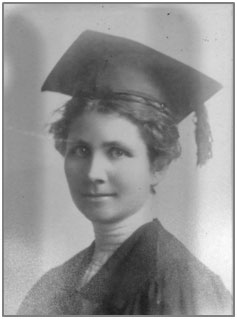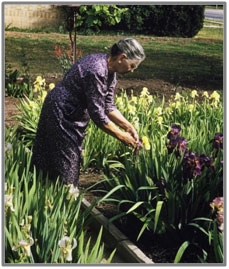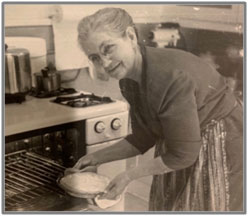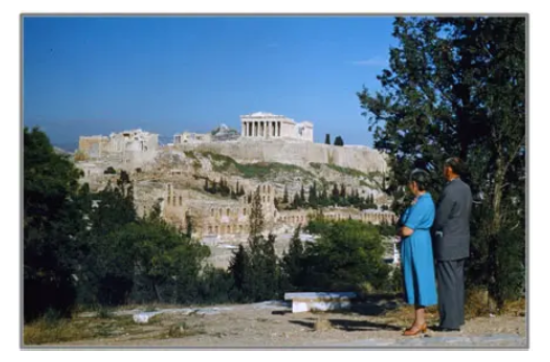Thank God for the sun. I don’t think I could have borne it without the warmth of it. She’s gone. Really gone. How I shall miss her.
There she was, my mother….in that casket…. cold…. still…of course, and beautiful though I couldn’t see her. But I knew how she looked, her waxen face, so still, but so life-like. My father had knelt over her and kissed her goodbye on our last visit to the funeral home. I had asked the attendant to place a solitary red rose in her hand.
Didn’t I want her gold wedding ring removed he had said. I didn’t even ask Daddy. “No, leave it,” I replied. And I silently said goodbye to my mother.
She had lived her 83 years to the fullest degree. I doubt that she had ever wasted a moment of her precious life. She had loved it. She was a frugal woman. From a large farming family, one of two girls, she literally pulled herself out of the drudgery of day to day labor in the fields and kitchen. She studied and loved her school. When it came time to go to high school, she had to move into town and take room and board with a family in exchange for helping out and tutoring. And after four laborious years, she graduated from school with honors.
Then more work interspersed with teaching and with much sacrifice, she graduated from college. Most of her friends had married long ago, but at age twenty-seven, she married my father, a college classmate who had finished a year earlier.
My mother could quote poetry and orations she had learned as a young person upon request until her last illness which came five days before she died. Her mind never aged, only her body. She changed with the times. She studied religion and changed her ideas as her knowledge grew.
She read to me as a child and made me love such poems as “The Rhyme of the Ancient Mariner” and the frightening stories of Edgar Allen Poe. She had no use for narrowness or gossip, or egotism or ignorance.

Colorado State Agricultural College, Ft. Collins

She loved her garden and worked as hard as any man to make it thrive. She had an irresistible urge to can and preserve, even now her kitchen shelves were burdened with the canned fruits and vegetables of her last season on Earth.
From her I learned to scrape the last bit of shortening out of the measure, or the last of the cake batter into the pan. To waste was a sin. Old bread was served for bread pudding or dressing. Scraps were saved for soup. If one of her children couldn’t finish dinner, nothing was said, but the food was saved and pleasantly returned to him at the next meal. And for the next few days, much smaller portions would be served, lest he waste his food again. She was a great cook, and this seldom happened. We were hardly ever given a whole apple or orange, but a half or even a slice, until she was certain we were hungry enough to finish it. This was no doubt a hang up from her own humble childhood when the only fruits she ever saw were in her Christmas stocking. Funny to be remembering these things….

She loved games and won many prizes at Bridge and ‘42’, but she had no use for poor losers or people who took these games too seriously. She also had no use for overindulgence, whether it be tobacco, alcohol, or food. They were each equally harmful.
Since I was the baby of the family, her way of life was already established by the time I came along. She was active in many civic things, the usual women’s clubs such as art, music, church groups, the hospital auxiliary and many more. She not only belonged, but at one time or another was president, having worked along the way at many other positions as well.
Truly, she was young at heart, always ready to learn, seeking adventure and looking forward to tomorrow. When she died, she left me with a heart full of memories and values to pass on to my children and their children. She lived with patience and courage, strength and understanding. She was a good wife, a loving wife and mother. God let her die first, but not before her time, and for that, I was grateful. The pain of her absence has been eased with the love she left behind.

